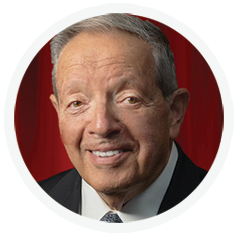MEET THE PRESENTERS

Goldstein, Jerrold
Jerrold Goldstein was born and raised in N.J.. He earned his B.A. in History and Political Science at Monmouth University (N.J.) and his Juris Doctorate at American University (Washington College of Law). He was a Civil Trial lawyer in New Jersey from 1967 through 2000 and is the current owner of a consulting company that assists attorneys before trial. He was an Adjunct Professor of history at Kean University in Union, NJ, from 2000 until 2021. He moved to Florida in 2023. His vast experience in lecturing on American History topics at the university level and adult education courses, along with his trial experience, provides a unique experiential opportunity to educate and entertain.

Granat, Harvey
Harvey Granat leads an exciting life as a performer and music historian. He performs at various supper clubs, resorts, and other cultural venues, including Lincoln Center, Norton Museum, Feinstein's at the Regency, Metropolitan Room, Birdland, and Canyon Ranch, where he has performed more than 250 shows. He presents a very popular series on “The American Songbook” at The 92nd St Y in NYC, now in its 7th year. His shows are unique in that they focus on a composer or lyricist, combining the performance of their songs with fascinating inside stories from their lives. Granat produced four-time Academy Award winner Sammy Cahn on Broadway in the very successful “Words and Music”. His friendship with Cahn led to his serving on the Board of The Songwriters Hall of Fame with Cahn. He is a major collector of original letters and manuscripts of some of the greats and there is a "Harvey Granat George and Ira Gershwin Collection" at The Library of Congress

Green, Martin
Martin Green, D.C. has been an avid car collector and enthusiast for 42 years and has lectured on cruise ships on the history of the automobile industry and the evolution of the car hobby. He has extensively studied how the U.S. economy continues to be influenced by the automobile industry, particularly fuel prices and the socioeconomic implications thereof.

Greene, Bennett
Bennett Evans Greene graduated from Middlebury College in 1963 as a psychology major. He graduated from Boston University School of Law in 1966 and then served as a law clerk to a United States District Judge. He became a prosecuting attorney, entered private practice, and then was appointed a state Assistant Attorney General in 1978. Following three years in that post, he re-entered private practice in 1981, focusing his practice on business, labor and employment, and public utility law, retiring in 2009. Since retirement from the practice of law, he served as an arbitrator and mediator.

Greenhut, Jeffrey
Dr. Jeffrey Greenhut received his doctorate in history with a specialty in military history in 1978. He has worked at the National Archives in Washington, was Command Historian for the Naval Security Group, and was a Program Director for the United States Army Center of Military History. He has taught at American University and Johns Hopkins University, among others. He has published in a number of scholarly and professional journals. Additionally, Dr. Greenhut is a retired Army officer (Lt. Col.) with service in Vietnam, Panama, Africa, and the Middle East. He holds the Army Achievement Medal, Army Commendation Medal with Oak Leaf Cluster, the Meritorious Service Medal, and the Bronze Star.

Gridley, Mark C.
Mark C. Gridley, Ph.D., is a professional jazz saxophonist-flutist-bandleader who taught jazz history and appreciation at Case Western Reserve University, where he developed America's most widely used introductions to jazz: "Jazz Styles: History and Analysis and its abridged edition, Concise Guide to Jazz," (Prentice-Hall). His books have been translated into six foreign languages. His articles appear in numerous academic musicology journals as well as Groves Dictionaries of Music and Encyclopaedia Britannica. Gridley has been honored by the Educational Press Association of America’s Distinguished Achievement Award, and he is listed in "Marquis Who’s Who in America."
